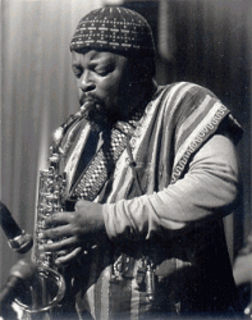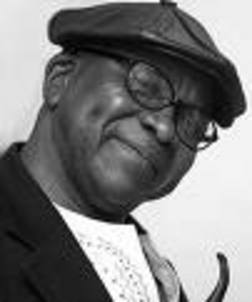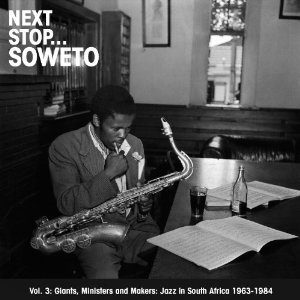VARIOUS ARTISTS / Next Stop… Soweto
I had been walking for at least a mile and was beginning to wonder whether I’d gotten the directions mixed up. I had my head down walking into the wind. My eyes were watering as the damp chill stung my eyeballs. I pulled my light coat tighter and plowed on through a typical London autumn evening: cold, totally overcast, dismal.
Row upon row of nearly identical stone apartment buildings mocked me with my myopic eyes looking for a specific street address—I was not even sure I was still on the street I was supposed to be on. I kept walking.
Finally, I saw a number that let me know I was getting closer. I didn’t know the guy I was going to see. I had been referred by someone both he and I knew. I was from the USA, he was from South Africa. When, at last, I knocked on his door, Sarrote greeted me with a warm hug and we literally sat in front of a crackling fireplace and talked for over an hour.
I have never been in exile but it can’t be nothing nice. On that visit to London I met a number of people who were living a long way from their homes. It was instant connections when I would talk with any of the South Africans. We commiserated about the ugliness of London weather, and spoke warmly about home, even though home was thoroughly racist.
One of the people I met and with whom I bonded was saxophonist Dudu Pukwana. I believe I made three of his gigs in an eight-day period and would hang backstage chatting and discussing the main thing we had in common besides suffering apartheid/segregation. That main thing was the music. Oh, the music.
Listening to this 2-CD compilation, a jumble of memories tumbles around inside my heart. Listening to South Africa jazz always reminds me of Willie Kgositsile declaiming the amazing similarities between our two homelands. Both of us had been urbanized.
Jazz is such an urban music.
As one listens to these different musicians, there is so much about the music that sounds familiar even as there are elements that are distinctly South African.
Dudu’s quicksilver alto seemed to me oiled by the same liquidity that flowed from Eric Dolphy’s alto. They both had that tart sound that confronted ignorance and shaved the corners off squareness. Eric died in Berlin. Dudu never got back home from exile. There is a strain of sadness streaking through Dudu’s beautiful sound.
There was another syndrome characterizing this music. Just like there were millions of black folk who never migrated out of the South, many, many millions more never left South Africa. What we had in common was dealing with racists, which means we had in common deceptions and dodges on the one hand, and desperate acts of defiance on the other.
Most of the musicians on this set are the brothers who stayed and did whatever they had to do to survive and continue making music. And believe me, that was a terrible “whatever.” 
Winston “Mankunku” Ngozi once performed behind a cloth hung up to conceal that he was playing in an integrated group. Moreover, jazz like these cats played has a strong intellectual element: you have to study hard to make these changes, to develop the chops (techniques) to play your horn in this manner, to become aware of what is happening around the world with jazz. Winston’s dedication to John Coltrane and Wayne Shorter, whom he refers to as “Daddy” and “Brother” respectively, is a deep statement way beyond how the music sounds.
My point is that these were curious and self-disciplined artists who had to kowtow to apartheid. Apartheid is a bitter diet. It’s shit is totally stinky. And yet there were those who chewed those bones and grew strong, and kept on, and miraculously produced beautiful music.
If you like any of this music, I strongly urge you to order the CD. The liner notes by Gwen Ansell are deeply researched and concisely presented. And if you really want to get down with finding out the ins and outs of this music, get ahold to Ansell’s impressive book, Soweto Music: Jazz, Popular Music & Politics In South Africa.
There is so much, so very much: ideas, experiences, emotions, struggles, joys and sorrows all back behind, around, all up and down, inside and outside this music that time has made sound much safer than these creations actually were at the time and under the conditions they were first sounded.
Next Stop... Soweto is the soundtrack of an inchoate insurgency that would shortly erupt and change South Africa forever. As always, the musicians were on the leading edge of what was happening, the leading edge of the strange mixture of acceptance and defiance that is the constant reality of human life under the whip of racist settler states on both sides of the ocean.
—Kalamu ya Salaam
Next Stop… Soweto Playlist
Next Stop… Soweto
01 “Switch” - Chris McGregor & The Castle Lager Big Band
02 “Orlando” - Dennis Mpale
03 “Little Old Man” - Maxhegwana - Early Mabuza Quartet
04 “Emakhaya” - The Heshoo Beshoo Group
05 “Joe's Jika” - Dudu Pukwana & The Spears
06 “Take Me To Brazil” - Jazz Ministers
07 “Be There” - Skyf
08 “Sangoma” - Malombo
09 “Dedication (To Daddy Trane And Brother Shorter)” - Mankunku Quartet
This entry was posted on Monday, August 16th, 2010 at 6:14 am and is filed under Classic. You can follow any responses to this entry through the RSS 2.0 feed. You can leave a response, or trackback from your own site.
Leave a Reply
| top |